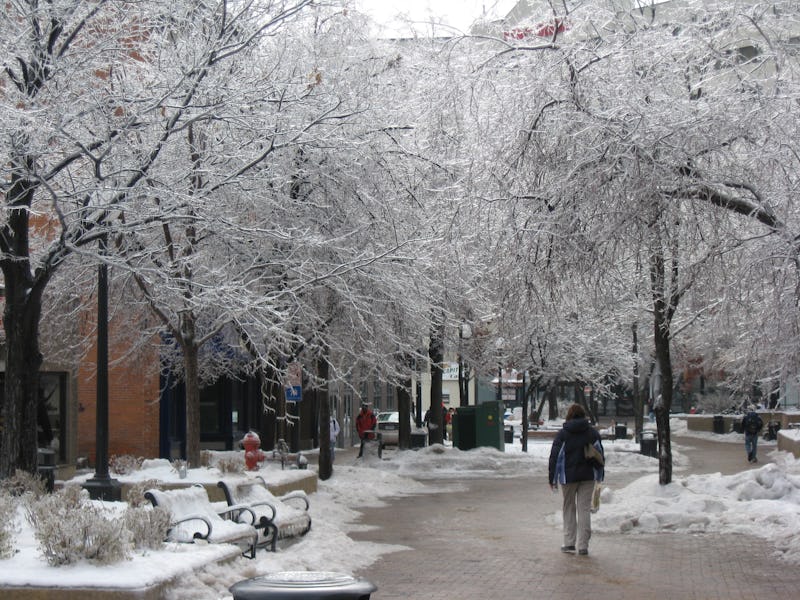The Mini Ace Age Theory Is Recycled Nonsense
There's no evidence that sunspots affect our climate.

Journalists can’t resist a story about a pending ice age. What better way to keep the climate change “debate” interesting and canned good sales high. Publications — which ones tends to vary — recycle this story every couple of years, and when the opportunity to revive it presented itself last weekend, the Internet was all over it. Headlines warned against a massive global cooling, claiming that we were about to enter a mini ice age and that a report from scientists at the University of Northumbria had proven just that. Well, surprise: They didn’t and we’re not. This is just another case of good science being subjected to bad reading.
The report in question was a study on sunspots presented at the annual meeting of the Royal Astronomical Society last week. Valentina Zharkova, who led the research, did find evidence in the sun’s sunspot patterns that solar activity will decline in the next few decades, but nothing in her press release mentions anything about the effect of that change on the Earth’s climate. What the press release does mention, however, is the “Maunder Minimum” — which refers to a period between 1645 to about 1715 when sunspots became rare. Again, nothing to do with the Earth’s climate, but the media took this sexy bit of info and rolled with it.
It so happens that the Maunder Minimum partially coincided with a period of intense cooling in Europe often referred to as the “Little Ice Age,” but no formal correlations between the two have been made. But that didn’t stop writers from claiming the existence of a cause and effect relationship, which they then extended to the current decline in sunspots, leading them to predict that the sun was going to “go to sleep,” leaving us all to freeze to death. Other writers couldn’t resist the temptation to bring in the global warming debate, implying that the apparently imminent global cooling could counteract the effects of climate change.
The science world is no place to be jumping to conclusions. But, unfortunately, it’s all too easy to get the relationships between the facts wrong, especially for untrained writers and readers. It’s amazing how far from the truth you can get with a few mental leaps.